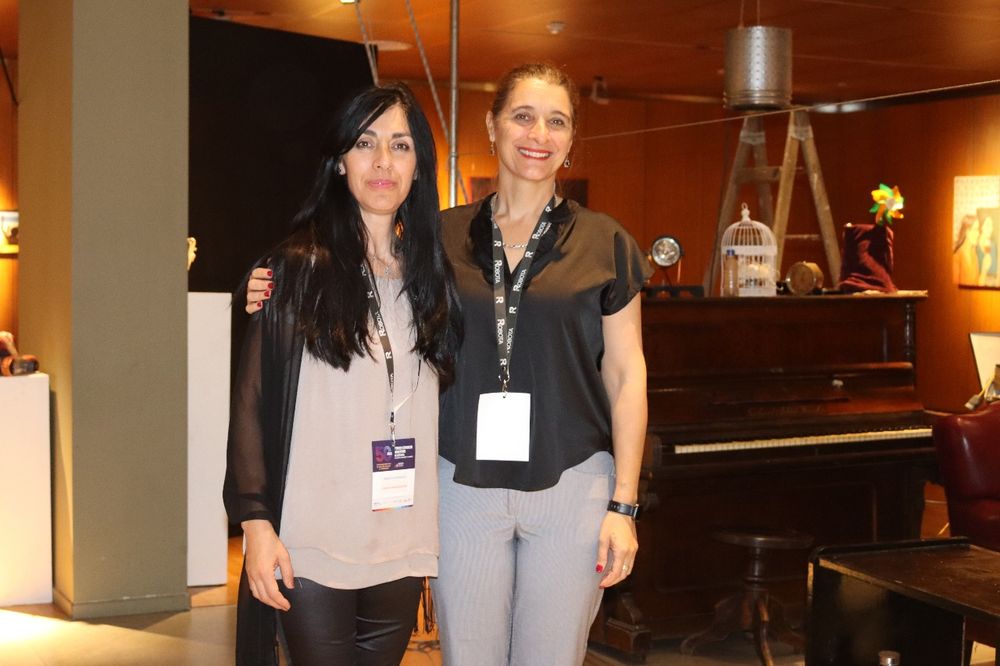Mining and women workers: inclusion and challenges of a sector in transformation

"Mining can be a space for professional and personal development if it is built with responsibility, a gender perspective, and community participation," they stated.
"Many women find in mining the opportunity to access quality jobs in regions where opportunities are limited. This has a direct impact not only on their careers, but also on the communities they are part of," the specialist explained.
Ahumada and Jerez's proposal is part of the 2030 Agenda for Sustainable Development Goals (SDGs) , which promotes decent work, gender equality, and the reduction of inequalities.
Support and mentoring networksA central focus of the presentation was the role of WIM Argentina , an organization that promotes mentoring programs, training, and active listening opportunities for women entering or developing in the mining industry.
Ahumada emphasized that these professional networks have been decisive in sustaining careers in an environment where cultural resistance still persists. "Social and professional networks have been a key tool for many women to find a place in the industry," she said.
In fact, national and international mentoring programs are increasingly valued by young professionals seeking to chart a career path. According to the authors, this type of support is vital to strengthening women's retention in the sector and ensuring their advancement toward leadership positions.
Education and training: the great debtThe report presented to Congress revealed that one of the main obstacles to increasing female participation is the lack of specific educational offerings in mining and STEM (Science, Technology, Engineering, and Mathematics) careers in several provinces.
A survey conducted by WIM Argentina and Poliarquía Consultores in 2025 showed that between 63% and 74% of respondents perceive that there is not enough academic offering to cover the needs of the mining sector .
The strongest demand is for heavy machinery operators, geology technicians, safety and hygiene technicians, and mechanical and electrical maintenance technicians , but profiles related to mental health, emotional support, and motivational psychology are also required.
"It is essential that secondary, technical, and university education be linked to the needs of the mining industry. Otherwise, the gap between what the industry demands and what academia offers will continue to widen," Ahumada warned.
Cultural and social challengesDespite progress, the mining sector remains highly masculinized and faces persistent cultural challenges . One of the most common is the relationship between motherhood and job security.
According to surveys conducted by WIM, many women leave their positions not because of a lack of interest or ability, but because of the absence of care networks and the social pressure that places them as the primary parenting responsibility .
In this regard, measures such as equitable parental leave, lactation spaces in mining camps, and flexible policies that allow for balancing work and family responsibilities are being discussed.
"Many women leave their jobs not because they want to, but because the environment doesn't offer the necessary conditions to sustain their careers," Ahumada emphasized during her speech.
The value of soft skillsIn addition to technical training, the analysis presented in Córdoba highlighted the importance of so-called soft skills : resilience, emotional flexibility, empathy , and teamwork skills.
In mining camps, where workdays are long and geographic isolation is high, having these skills is crucial. According to Jerez and Ahumada, this is an area where disciplines such as psychology, communication, and social work can provide key tools for coexistence and conflict prevention.
The future of the sectorProjections suggest that mining will be one of the fastest-growing sectors in Argentina over the next five to ten years, especially as lithium, copper, and gold expand.
In this context, female participation is not only a matter of equity, but also of competitiveness. "The sector needs diverse talent to sustain its growth. Women can and should play a leading role in this process," Ahumada emphasized.
Networking between the State, private companies, universities, and civil society organizations appears to be an essential condition for ensuring safe, violence-free work environments with equal opportunities.
Marita Ahumada and Alejandra Jerez

Marita Ahumada 's tenure in the Córdoba Congress reflected a broader phenomenon: the cultural and structural transformation of mining in Argentina . Little by little, spaces are multiplying for women geologists, engineers, technicians, and professionals from diverse disciplines who contribute to a complex industry, one that presents significant challenges but also enormous opportunities for development.
"Mining is also an opportunity for women," Ahumada summarized in her presentation. The simple yet powerful phrase contains an invitation to rethink the sector as a space that, in addition to generating wealth, can become a driver of equity, innovation, and sustainable development for the country. / CO
losandes




